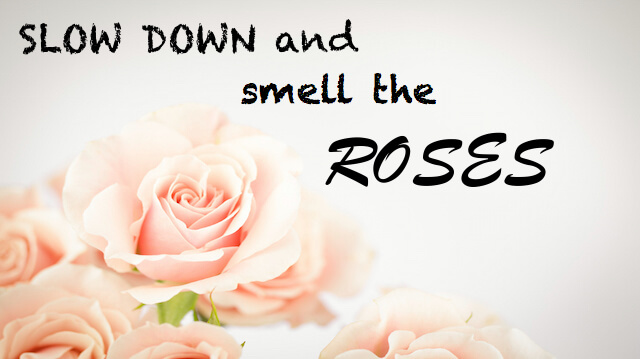Here’s the paradox: Relaxation takes effort.
Learning to unwind is not easy, particularly if you’re the hard driving, achievement-oriented type. It takes effort-that’s the paradox. You have to find what will do the job for you.
There are a number of a basic rules for keeping from getting wound up too tight. The first is to add balance to your life. Make a special attempt to seek out leisure activities that are different from you work.
The second rule is to work up a sweat once in a while. Research shows that 30 minutes of intense aerobic exercise immediately reduces body tension. Weight lifting counters anxiety and depression and boosts self esteem.
The third rule is that whatever you choose as a relaxation break, it has to be relaxing to you. You need to put together a relaxation package, a set of techniques that will calm you down. Here are some ideas to try:
-
Pad your schedule. By allotting yourself enough time to accomplish a task, you cut back on anxiety. In general, if meeting deadlines is a problem, always give yourself 20% more time than you think you need to do the task.
-
Carry a canteen. Keep a plastic bottle of water at your desk, and drink often. When you are under stress, you sweat more, and then, of course, there is your dry mouth. You will feel better if you hydrate your high anxiety.
-
Serve soup, live longer. Be a volunteer. Isolation only magnifies your worries. Helping other people will give you a sense of accomplishment; of self-respect-and remind you that, relatively speaking, your own troubles don’t amount to much. An added benefit: Self-sacrifice may help you live longer.
-
Smell the apples. A recent study found that men doing math problem under time pressure were less stressed if they were exposed to the scent of green apples. There is evidence that the scent of vanilla may also induce relaxation.
-
Tune out – have a potato. Eat a meal high in carbohydrates. Carbohydrates trigger the brain chemical serotonin, which soothes you. Good carbohydrate foods include rice, pasta, potatoes, breads, popcorn, and low-calorie cookies. Eleven ounces of carbohydrate is enough to relieve the anxiety of a stressful day.
-
Tune in – have a steak. It’s no help unwinding if you feel sluggish and tired, a high-protein lunch of meat, fish, or poultry will help prevent the afternoon blahs. Protein is loaded with tyrosine; an amino acid that has been shown to boost performance is the face of stress.
-
Quit doing too much. Look at your life. Are you doing too much? If your are on the company sports team, volunteering on a social committee, and you don’t have a weeknight free, you are choking on more than you can chew. Decide what gives you the most pleasure and do only those things.
- Get creative. For some people, it takes being creative in order to relax. Doing the arts may be exactly what they need as doing hobbies are known to trigger dopamine, serotonin and endorphins which are happy hormones.
Fourth, carve out some time in your schedule for the relaxation activity to take place. As been said before, relaxation takes effort. Which is why you will need to empty time in your busy schedule in order to really relax, where you will also not have a deadline looming over your head.
Fifth, determine which part of you needs relaxation. Is it your body or your state of your mind?
 Here are just some ways to relax your body:
Here are just some ways to relax your body:
- Practice your snorkeling. Want to really relax your muscles? Soak in hot tub. To get the most relaxation from a hot bath, soak for 15 minutes in water that’s just a few degrees warmer than your body temperature, about 100 degrees Fahrenheit. But be careful: Longer soaks in warmer water can actually lower your blood pressure too much.
- Get a grip. Keep a hand exerciser or tennis ball in your desk and gave it a few squeezes during tense times. When stress shoots adrenaline into the bloodstream that calls for muscle action. Squeezing something provides a release.
- Do a Body Scan. One of the best ways to combine mindfulness and integrate it with the body is through a body scan. In this way, you can mentally scan your body in order to find out where the tension and stress is. Lie on your back or sit with your feet on the floor. Begin from your toes up to your scalp, noticing along the way how your body feels.
When you are busy and your chores are piling up, it’s not only your body that suffers but also your mind. Fortunately, there are many ways to relax your mind in order to have a healthier, calmer mind rather than chaotic and frenzied.
Here are some ways to relax your mind:
- Hold your breath. This technique should help you to relax in 30 seconds. Take a deep breath and keep it in. Holding palm-to-palm, press your fingers together. Wait five seconds, then slowly exhale through your while letting your hands relax.
- Don’t track dirt in. When you get home from work, avoid the temptation to bitch about your workday. Home should be a sanctuary. Don’t recount the stresses of the day. Instead, set aside 10 minutes or so quest time to put the workday behind you before you try to leap right into your loving-parent-and spouse routine.
- If your mind is in chaotic state, meditation may be the mental exercise. Meditation is excellent for relaxation as well as having a more positive attitude in life. Practiced long term, it can equal to greater resilience towards stress.
- Find your ‘happy place’. Ever heard about the mystical ‘happy place’? It’s a place in your mind where you go to when you are stressed in order to be happier, calmer and more peaceful. In order to create said ‘happy place’, conjure up images of places, scenes or experiences in your mind that helps you relax and focus. If you have none in your memory, there are apps on your phone that can provide you recordings of calming scenes. One thing to note is to also sure that you choose images you find soothing and that has personal significance.
- Write down your thoughts. If you are feeling stressed out, one of the ways that will help you relax is by expressing your feelings out on paper. Take a few minutes each day to write down short notes about how you are feeling or about how your day is going. Don’t worry about writing or spelling everything correctly, as this is just a mode of expressing your feelings. What’s important is to release all your feelings on that blank sheet of paper or on your phone in order to help release some of your stress.
Have you tried any of the tips above? Tell us your experience in the comments section below!






